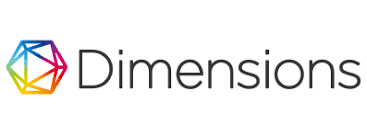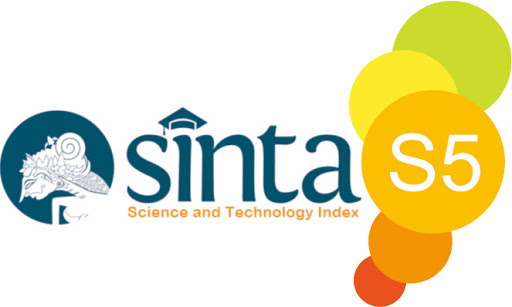Kebijakan Pengembangan Pariwisata Tangguh Bencana Melalui Kolaborasi dan Manajemen Pariwisata Kebencanaan Terintegrasi
DOI:
https://doi.org/10.36276/jap.v4i1.422Keywords:
Ketahanan Pariwisata, Bencana, Kolaborasi, Sinergi dan IntegrasiAbstract
The development of disaster-resilient and disaster-safe tourism policies, policy strengthening and implementation of collaboration will be integrated into one disaster tourism management framework.
In the past decade, Indonesia has never been separated from the threat of disasters or crises that hurt Indonesia's economic growth. Tourism suffers considerable losses from a tragedy or crisis that befell our country. Through the development of resilient and disaster-safe tourism, policy strengthening and collaboration implementation will integrate into one disaster tourism management framework aimed at strengthening the tourism sector's resilience and contributing to social and economic aspects. This article uses desk study and descriptive-analytical approaches. The author finds that the development of disaster-resilient tourism must be synergized with the context of disaster management, namely the pre-disaster stage, when a disaster occurs, and the post-disaster step, which is implemented through an alignment scheme for tourism policy and disaster management as well as collaboration between stakeholders through five stages of the program which aims to provide quick and responsive resolution and collaboration steps in dealing with recovery and long-term resilience actions, especially in the tourism sector with an integrated disaster tourism management framework. Some of the recommendations from this study include the New Regulation, which explicitly regulates disaster-resilient tourism, the intensive collaboration between ministries/institutions, the synergy of tourism programs and disaster management for disaster-prone destinations, and the realization of integration of tourism and disaster policies.
References
Abdeen, F. N., Fernando, T., Kulatunga, U., Hettige, S., & Ranasinghe, K. D. A. (2021). Challenges in multi-agency collaboration in disaster management: A Sri Lankan perspective. International Journal of Disaster Risk Reduction, 62, 102399. https://doi.org/https://doi.org/10.1016/j.ijdrr.2021.102399
Agustan, A., & Kausar, D. R. K. (2019). Integrated Surveying for the Archaeological. Geographia Technica, 14(Special Issue), 39–50. https://doi.org/10.21163/GT
Aribowo, H., Wirapraja, A., & Putra, Y. (2018). Implementasi Kolaborasi Model Pentahelix Dalam Rangka Mengembangkan Potensi Pariwisata Di Jawa Timur Serta Meningkatkan Perekonomian Domestik. Jurnal Mebis (Manajemen Dan Bisnis), 3(1), 31–38. https://doi.org/10.33005/mebis.v3i1.21
Avraham, E. (2016). Destination marketing and image repair during tourism crises: The case of Egypt. Journal of Hospitality and Tourism Management, 28, 41–48. https://doi.org/https://doi.org/10.1016/j.jhtm.2016.04.004
Bello, O., Bustamante, A., & Pizarro, P. (2021). Planning for disaster risk reduction within the framework of the 2030 Agenda for Sustainable Development. Santiago: Economic Commission for LatinAmerica and the Caribbean (ECLAC).
BNPB. (2019). Rentannya Pariwisata dari Bencana. Https://Bnpb.Go.Id/Berita/Rentannya-Pariwisata-Dar.
Collins-Kreiner, N., & Ram, Y. (2021). National tourism strategies during the Covid-19 pandemic. Annals of Tourism Research, 89, 103076. https://doi.org/10.1016/j.annals.2020.103076
Creswell, J. W., & Creswell, J. D. (2018). Research design: qualitative, quantitative, and mixed methods approaches (Fifth edit). SAGE Publications Sage CA: Los Angeles, CA.
Demartoto, A. (2019). Kajian Refleksivitas Masyarakat Risiko dalam Pengembangan Pariwisata Siaga Bencana Berbasis Collaborative Governance. Talenta Conference Series: Local Wisdom, Social, and Arts (LWSA), 2(1), 1–7. https://doi.org/10.32734/lwsa.v2i1.586
Demeter, C., Walters, G., & Mair, J. (2021). Identifying appropriate service recovery strategies in the event of a natural disaster. Journal of Hospitality and Tourism Management, 46, 405–413. https://doi.org/https://doi.org/10.1016/j.jhtm.2021.01.015
Estevão, C., & Costa, C. (2020). Natural disaster management in tourist destinations: A systematic literature review. European Journal of Tourism Research, 25(2020), 1–17. https://doi.org/10.54055/ejtr.v25i.417
Fairuuz, N., Nofrian, F., & Desmintari, D. (2022). Peranan Jumlah Wisatawan Asing, Nilai Tukar, dan PMDN dalam Sektor Pariwisata terhadap Pendapatan Devisa Pariwisata Indonesia. Jurnal Indonesia Sosial Sains, 3(4), 694–707. https://doi.org/10.36418/jiss.v3i4.570
Filimonau, V., & De Coteau, D. (2019). Tourism resilience in the context of integrated destination and disaster management (DM2). International Journal of Tourism Research, 22. https://doi.org/10.1002/jtr.2329
Fountain, J., & Cradock-Henry, N. A. (2020). Recovery, risk and resilience: Post-disaster tourism experiences in Kaikōura, New Zealand. Tourism Management Perspectives, 35, 100695. https://doi.org/https://doi.org/10.1016/j.tmp.2020.100695
Gössling, S., Balas, M., Mayer, M., & Sun, Y.-Y. (2022). A review of tourism and climate change mitigation: The scales, scopes, stakeholders and strategies of carbon management. Tourism Management, 95(April 2023).
https://doi.org/https://doi.org/10.1016/j.tourman.2022.104681
Gössling, S., Scott, D., & Hall, C. M. (2021). Pandemics, tourism and global change: a rapid assessment of COVID-19. Journal of Sustainable Tourism, 29(1), 1–20. https://doi.org/10.1080/09669582.2020.1758708
Halibas, A. S., Sibayan, R. O., & Maata, R. L. R. (2017). The penta helix model of innovation in Oman: An HEI perspective. Interdisciplinary Journal of Information, Knowledge, and Management, 12, 159–172. https://doi.org/https://doi.org/10.28945/3735
Hall, C. M., Scott, D., & Gössling, S. (2020). Pandemics, transformations and tourism: be careful what you wish for. Tourism Geographies, 22(3), 577–598. https://doi.org/10.1080/14616688.2020.1759131
Handler, I. (2016). The impact of the Fukushima disaster on Japan’s travel image: An exploratory study on Taiwanese travellers. Journal of Hospitality and Tourism Management, 27, 12–17. https://doi.org/https://doi.org/10.1016/j.jhtm.2016.01.007
Harchandani, P., & Shome, S. (2021). The Effects of Covid-19 on Global Tourism. ASEAN Journal on Hospitality and Tourism, 19(1), 63–83.
Hazra, S., Fletcher, J., & Wilkes, K. (2017). An evaluation of power relationships among stakeholders in the tourism industry networks of
Agra, India. Current Issues in Tourism, 20(3), 278–294. https://doi.org/10.1080/13683500.2014.887662
Hystad, P. W., & Keller, P. C. (2008). Towards a destination tourism disaster management framework: Long-term lessons from a forest fire disaster. Tourism Management, 29(1), 151–162. https://doi.org/https://doi.org/10.1016/j.tourman.2007.02.017
ILO. (2020). ILO Sectoral Brief: The impact of COVID-19 on the tourism sector.
ILO. (2022). The future of work in the tourism sector: Sustainable and safe recovery and decent work in the context of the COVID-19 pandemic. Geneva: Sectoral Policies Department.
Jiang, Y., & Ritchie, B. W. (2017). Disaster collaboration in tourism: Motives, impediments and success factors. Journal of Hospitality and Tourism Management, 31, 70–82. https://doi.org/https://doi.org/10.1016/j.jhtm.2016.09.004
Kemenparekraf. (2022). Rencana Strategis Kementerian Pariwisata dan Ekonomi Kreatif/Badan Pariwisata dan Ekonomi Kreatif Tahun 2020-2024 (Permenparekraf No. 11 Tahun 2022).
Lily Dianasari, D. A. M. (2021). Dampak Pandemi Covid-19 Terhadap Ekonomi Dan Lingkungan Fisik Di Desa Wisata Di Bali. Jurnal Kepariwisataan, 20(2), 99–106. https://doi.org/10.52352/jpar.v20i2.469
Liu-Lastres, B., Mariska, D., Tan, X., & Ying, T. (2020). Can post-disaster tourism development improve destination livelihoods? A case study of Aceh, Indonesia. Journal of Destination Marketing & Management, 18, 100510. https://doi.org/https://doi.org/10.1016/j.jdmm.2020.100510
Mudrikah, A. (2014). Kontribusi sektor pariwisata terhadap GDP Indonesia tahun 2004-2009. Economics Development Analysis Journal, 3(2).
Niyaz, A. (2015). Post Disaster Tourism Crisis Recovery in SIDS: Development and Testing of an Integrated Approach. Lincoln University.
Nugroho, P. C. (2022). Kolaborasi Pengembangan Pariwisata Aman Bencana.
Pahleviannur, M. R., Wulandari, D. A., Sochiba, S. L., & Santoso, R. R. (2019). Strategi Perencanaan Pengembangan Pariwisata Untuk Mewujudkan Destinasi Tangguh Bencana Di Wilayah Kepesisiran Drini Gunungkidul. Jurnal Pendidikan Ilmu Sosial, 29(2), 116–126. https://doi.org/10.23917/jpis.v29i2.9692
Paraskevas, A., Altinay, L., McLean, J., & Cooper, C. (2013). Crisis knowledge in tourism: types, flows and governance. Annals of Tourism Research, 41, 130–152. https://doi.org/https://doi.org/10.1016/j.annals.2012.12.005
Peraturan Presiden RI No. 87 Tahun 2020 Tentang Rencana Induk Penanggulangan Bencana Tahun 2020 - 2044.
Perkins, R., Khoo, C., & Arcodia, C. (2022). Stakeholder contribution to tourism collaboration: Exploring stakeholder typologies, networks and actions in the cluster formation process. Journal of Hospitality and Tourism Management, 52, 304–315. https://doi.org/https://doi.org/10.1016/j.jhtm.2022.07.011
Petriella, Y. (2019). Kerugian Sektor Pariwisata Akibat Bencana Alam Sepanjang 2018. Https://Infografik.Bisnis.Com/Read/20190122/547/881219/Ini-Kerugian-Sektor-Pariwisata-Akibat-Bencana-Alam-Sepanjang-2018.
Rahman, A. Z. (2015). Kajian Mitigasi Bencana Tanah Longsor di Kabupaten Banjarnegara. Jurnal Manajemen Dan Kebijakan Publik, 1(1), 1–14.
Rahu, P. D. (2021). Kolaborasi Model Pentahelix Dalam Pengembangan Desa Wisata Sei Gohong Kecamatan Bukit Batu Kota Palangka Raya. JISPAR, Jurnal Ilmu Sosial, Politik Dan Pemerintahan, 10(1), 1–24.
Rhama, B. (2022). Local communities’ and tourists’ adaptation to pandemic-induced social disruption: Comparing national parks and urban destinations. International Journal of Disaster Risk Reduction, 82, 103380. https://doi.org/https://doi.org/10.1016/j.ijdrr.2022.103380
Ritchie, B. W. (2009). Crisis and disaster management for tourism. Bristol: Channel View Publication.
Rosselló, J., Becken, S., & Santana-Gallego, M. (2020). The effects of natural disasters on international tourism: A global analysis. Tourism Management, 79, 104080. https://doi.org/https://doi.org/10.1016/j.tourman.2020.104080
Rusmini, A. (2021). Gambaran Dampak Pandemi Covid-19 Terhadap Destinasi dan Pariwisata di Indonesia. Kepariwisataan: Jurnal Ilmiah, 15(2), 136–145.
Rusmiyati, C., & Hikmawati, E. (2012). Penanganan Dampak Sosial Psikologis Korban Bencana Merapi. Sosio Informa, 17(2), 97–110.
Saito, H., & Ruhanen, L. (2017). Power in tourism stakeholder collaborations: Power types and power holders. Journal of Hospitality and Tourism Management, 31, 189–196. https://doi.org/https://doi.org/10.1016/j.jhtm.2017.01.001
Scott, D., & Gössling, S. (2022). A review of research into tourism and climate change - Launching the annals of tourism research curated collection on tourism and climate change. Annals of Tourism Research, 95(July 2022). https://doi.org/https://doi.org/10.1016/j.annals.2022.103409
Shmueli, D. F., Ozawa, C. P., & Kaufman, S. (2021). Collaborative planning principles for disaster preparedness. International Journal of Disaster Risk Reduction, 52, 101981. https://doi.org/https://doi.org/10.1016/j.ijdrr.2020.101981
Situmorang, M. T. N. (2022). Pariwisata Berbasis Siaga Bencana Di Era Disrupsi (Tourism Based on Disaster Awareness in the Era of Disruption). Seminar Nasional Pariwisata Dan Kewirausahaan (SNPK), 1(April), 1–6. https://doi.org/10.36441/snpk.vol1.2022.7
Sugiyono. (2017). Metode Penelitian Kuantitatif, Kualitatif dan R&D. Alfabeta.
Sun, Y.-Y., & Higham, J. (2021). Overcoming information asymmetry in tourism carbon management: The application of a new reporting architecture to Aotearoa New Zealand. Tourism Management, 83(April 2021). https://doi.org/https://doi.org/10.1016/j.tourman.2020.104231
Syaifudin, A., Hendarmawan, & Novianti, E. (2022). Impact of COVID-19 on the Global Tourism Economy. Journal of Tourism Education (JoTE), 2(1), 1–9.
UNDRR. (2017). Words into Action Guidelines: National Disaster Risk Assessment. Geneva: UNDRR (United Nations Office for Disaster Risk Reduction).
UNWTO. (2020a). Policy Brief: COVID-19 and Transforming Tourism.
UNWTO. (2020b). World Tourism Barometer, Statistical Annex (January 20). https://doi.org/https://doi.org/10.18111/wtobarometereng
UNWTO. (2022). International Tourism Back To 60% Of Pre-Pandemic Levels in January-July 2022. Barometer.
Vivian, T. C. (2011). Tourism business growth with specific reference to black economic empowerment in the tour operating sub sector in South Africa.
Wahyuni, P. I., Muliawan, I. W., Rangan, P. R., Sahabuddin, A. A., Dana, G. W. P., Tumpu, M., Mabui, D. S. S., Mansyur, Kusuma, A.,
Kurniawan, A., & Sinarta, I. N. (2021). Investasi Pariwisata Indonesia. Makasar: Tohar Media.
Waligo, V. M., Clarke, J., & Hawkins, R. (2013). Implementing sustainable tourism: A multi-stakeholder involvement management
framework. Tourism Management, 36, 342–353. https://doi.org/https://doi.org/10.1016/j.tourman.2012.10.008
Wan, Y. K. P., Li, X., Lau, V. M.-C., & Dioko, L. (Don). (2022). Destination governance in times of crisis and the role of public-private partnerships in tourism recovery from Covid-19: The case of Macao. Journal of Hospitality and Tourism Management, 51, 218–228. https://doi.org/https://doi.org/10.1016/j.jhtm.2022.03.012
Wicaksono, R. D., & Pangestuti, E. (2019). Analisis Mitigasi Bencana Dalam Meminimalisir Risiko Bencana. Jurnal Administrasi Bisnis (JAB), 71(1), 8–17.
World Bank. (2020). Resilient Tourism: Competitiveness in the Face of Disasters. Washington, DC: World Bank.
WTO. (2019). Country Research on Natural Disasters and Trade – Summary. Geneva: WTO.
Downloads
Published
How to Cite
Issue
Section
License
Copyright (c) 2023 Mahardhika Berliandaldo, Ari Prasetyo, Viky Pemuda Indra Sakti

This work is licensed under a Creative Commons Attribution-ShareAlike 4.0 International License.
Copyright Holder is the Author








